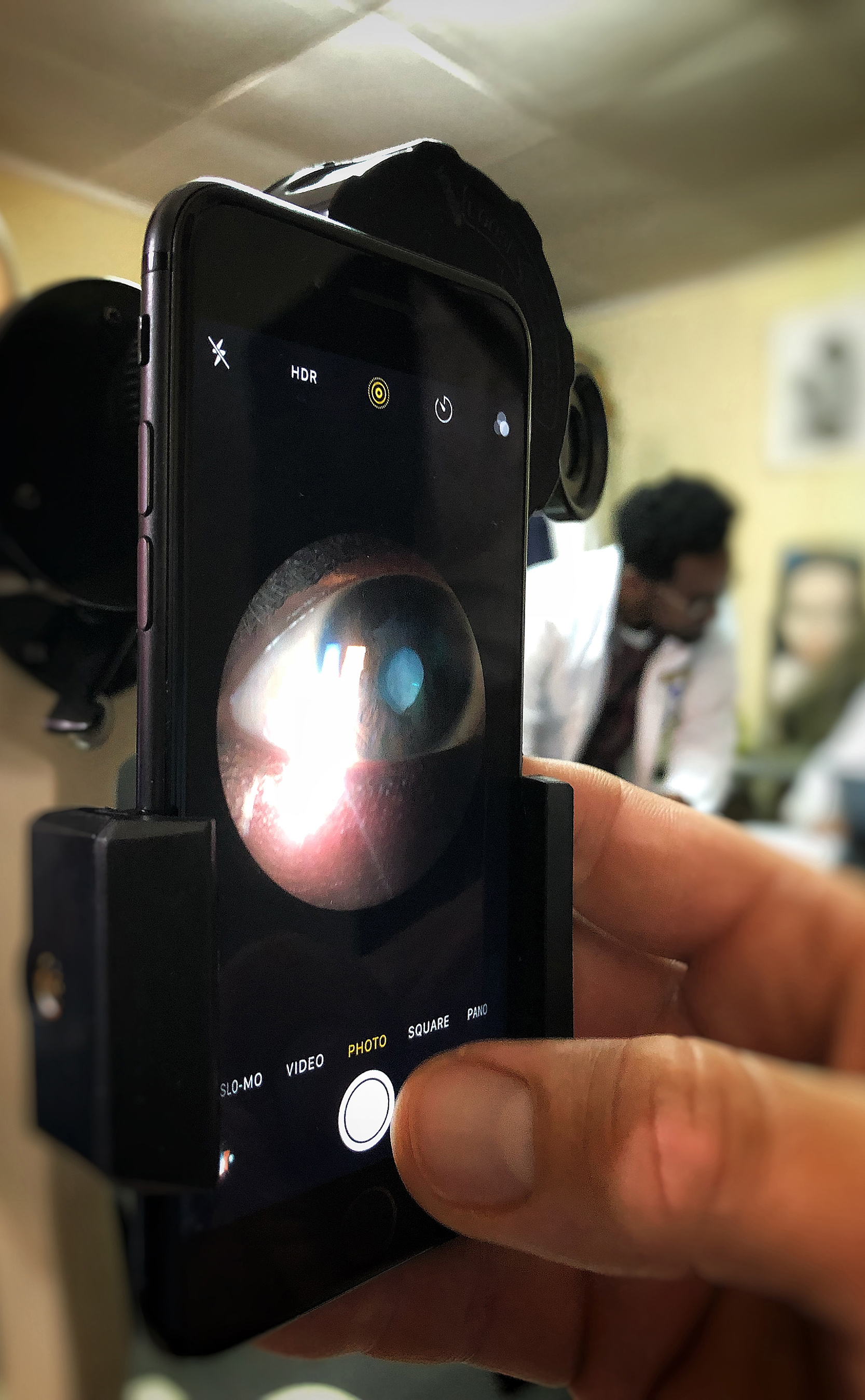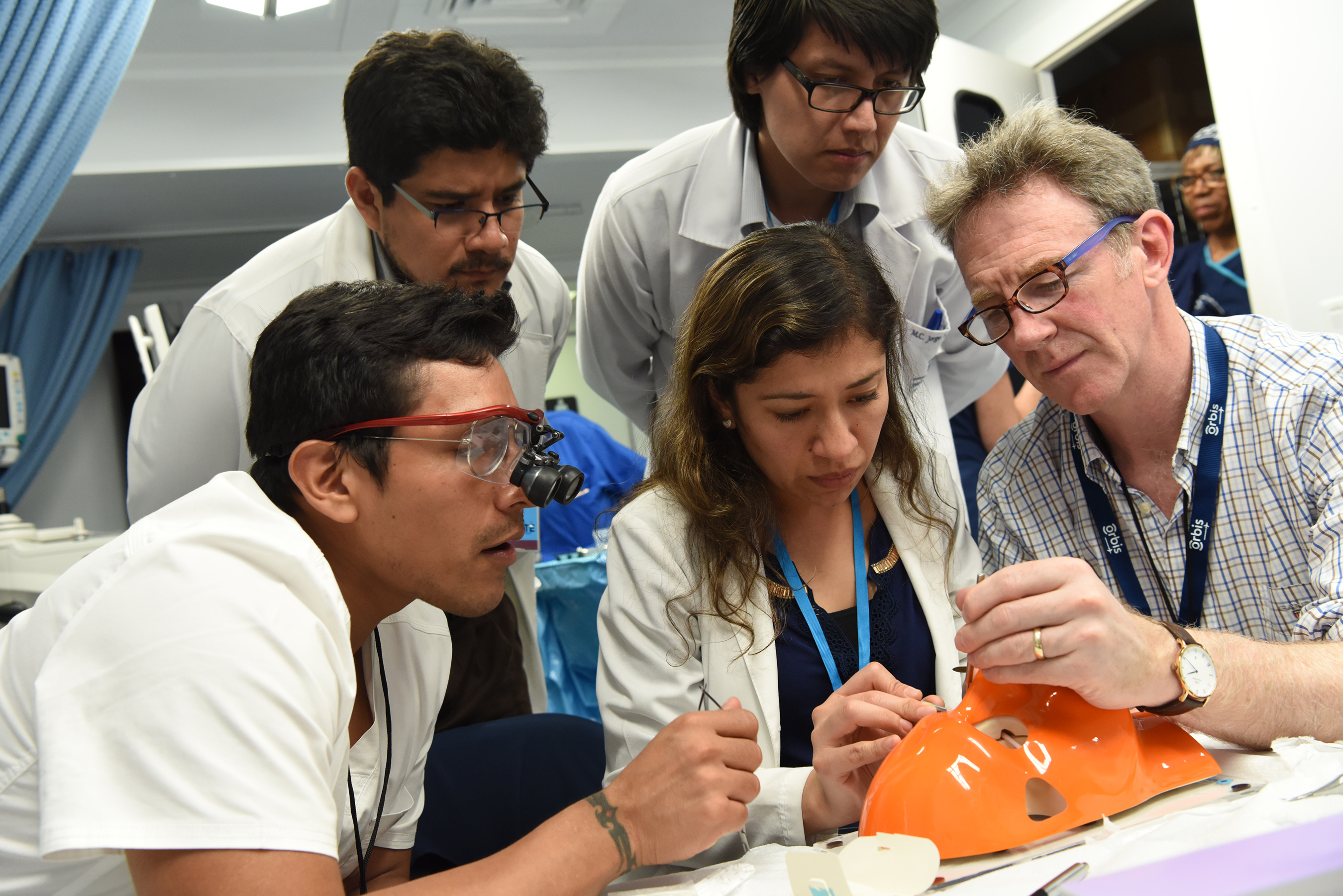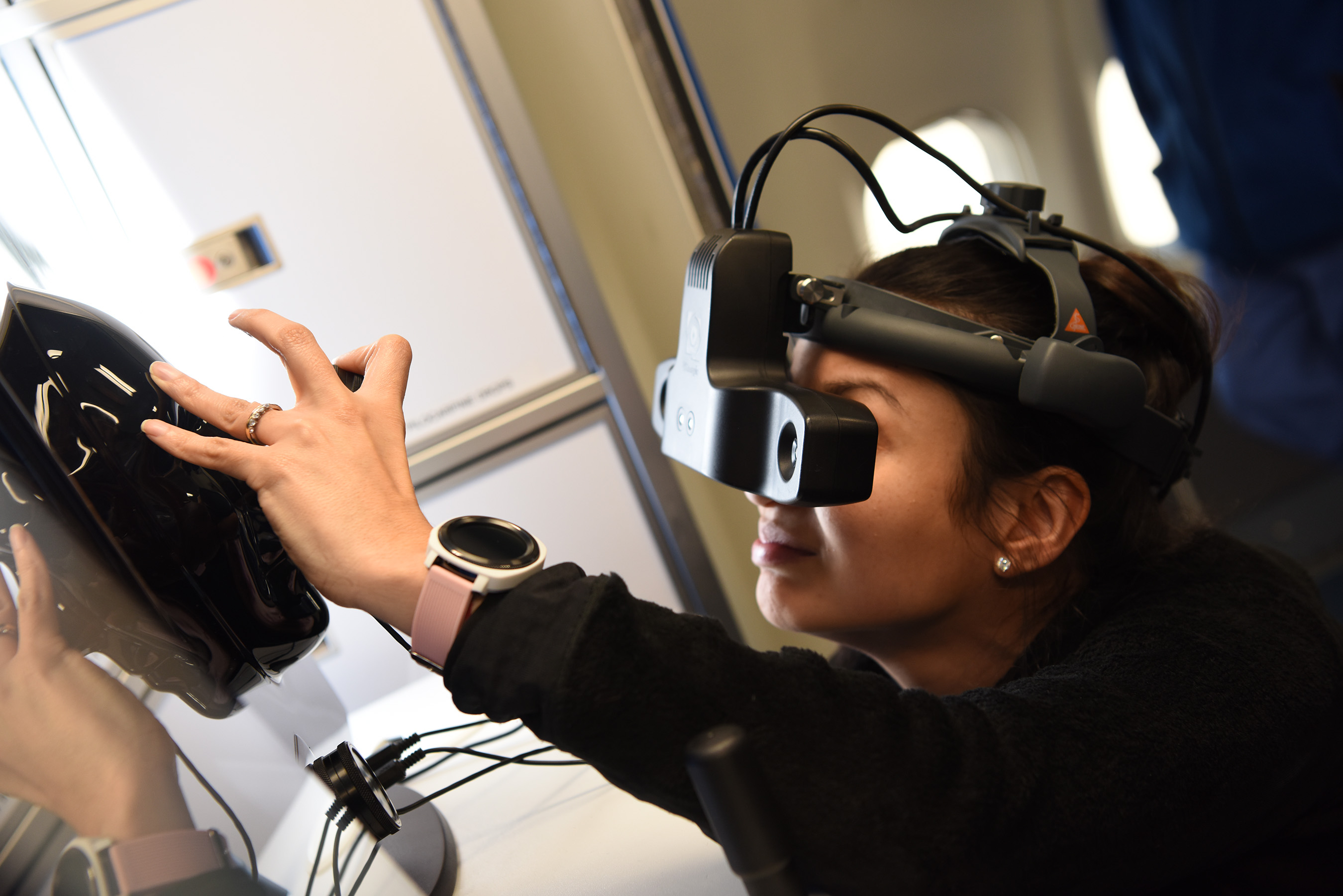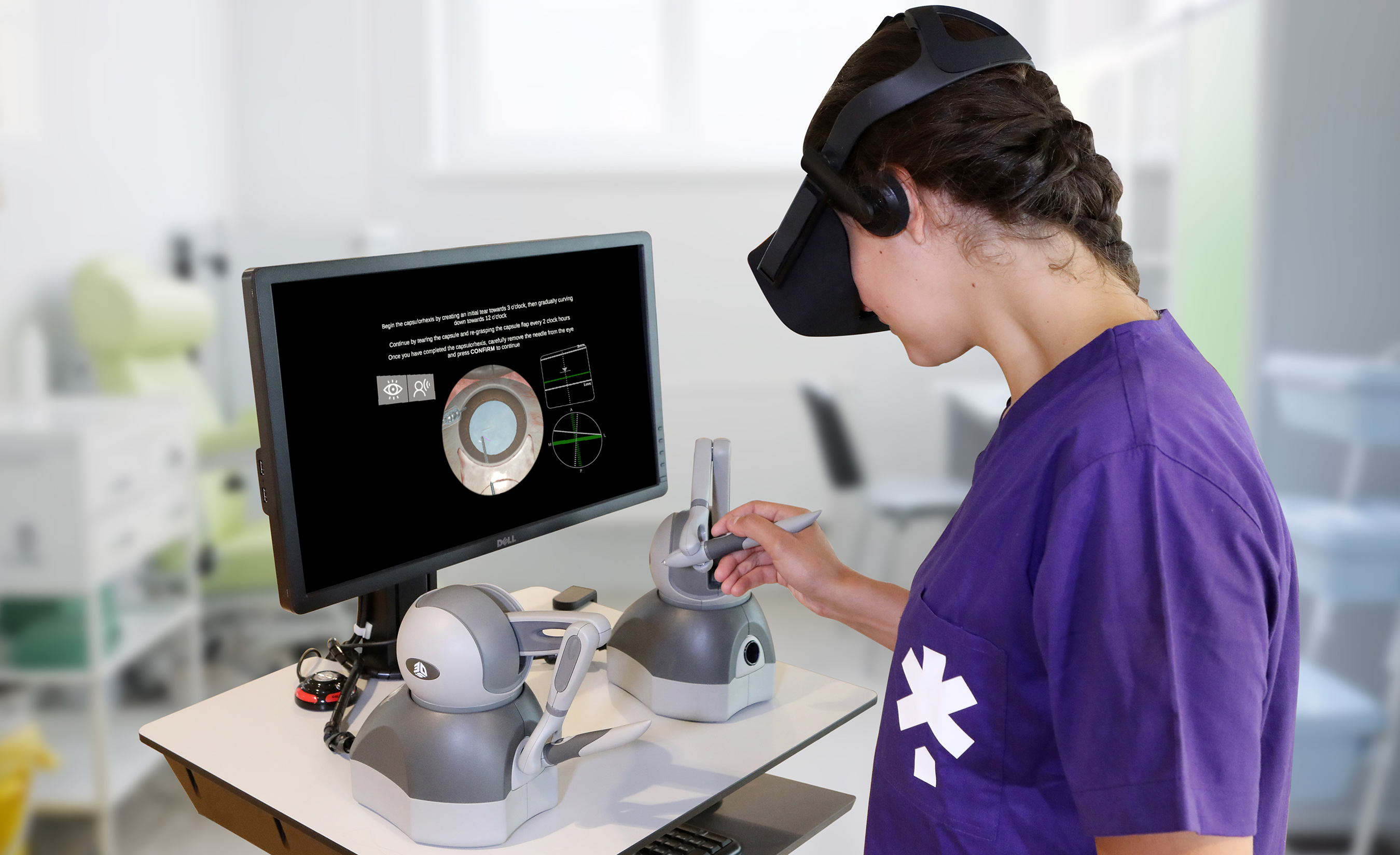Subjects: NPT, BFA
New Funding for Orbis International Will Increase Global Access to Eye Care through Technology
MOUNTAIN VIEW, Calif., Dec. 3, 2019 /PRNewswire/ -- This Giving Tuesday, Orbis International announced the launch of its Silicon Valley Orbis Innovation Fund, which seeks to raise $8 million in donations to harness the next generation of technology that will revolutionize the future of equitable access to quality eye care and ophthalmological training. The Fund kicked off today with a $1 million lead donation from noted Silicon Valley philanthropists Susan and John A. Sobrato, at an event held at Mountain View's Computer History Museum.
Experience the interactive Multichannel News Release here: https://www.multivu.com/players/English/8632851-orbis-give-the gift-of-sight/
The new technologies will include innovations in telemedicine, artificial intelligence, simulation and virtual reality that will increase access to training for eye care teams in low- and middle-income settings.
"Hundreds of millions of people go through life facing blindness and visual impairment simply because they can't get the eye care they need. We have an opportunity to change that," said Bob Ranck, President & CEO of Orbis International. "Training entire eye care teams ? everyone from health workers in rural clinics to eye surgeons in urban centers ? is the best, most sustainable way to ensure no one needlessly lives a life without sight."
Experts have predicted that global blindness and visual impairment are set to triple by 2050, but already, the number of people in need of eye care is outpacing the number of trained ophthalmologists. This makes it an especially critical moment to reimagine how we train local eye care teams and prepare them to provide quality care in their communities.
"We live in a remarkable time of innovation, but too often, technologies never reach the people who could most benefit from them," said John A. Sobrato. "I'm proud to invest in Orbis because it's an organization that understands the power of making cutting-edge technology accessible to communities for whom it normally remains out of reach.
For nearly four decades, Orbis has harnessed the latest in technology and innovation to take efforts to end avoidable blindness to an unprecedented scale, beginning with the invention of its Flying Eye Hospital, a fully accredited ophthalmic teaching hospital onboard an aircraft, in 1982. Today, Orbis's innovative approaches are also carried out via long-term programming in 18 countries worldwide and through the organization's award-winning telemedicine platform, Cybersight.
The Silicon Valley Orbis Innovation Fund will expand the reach and impact of Orbis's extensive achievements in technology and innovation in the following ways:
Telemedicine: For more than 15 years, Cybersight has used the latest advancements in internet technologies to give local eye care teams virtual access to clinical training, live lectures, surgical demonstrations, and on-demand advice for complex patient cases. Through Cybersight, Orbis trained nearly 6,000 eye health professionals in 165 countries, including in remote and conflict-affected areas, in 2018 alone.
One of the most important goals of the Fund is to develop a robust Cybersight mobile app because mobile phones are far more prevalent than computers in many of the countries where Orbis works. This will provide even more doctors and clinicians ? including in remote and conflict-affected areas ? with access to training and virtual mentoring. The Fund will also cover the development of new Cybersight courses as well as enhancements to the platform.
Artificial Intelligence: A new artificial intelligence tool on Cybersight can detect common eye diseases, such as diabetic retinopathy, in seconds by examining digital photographs of the back of the eye. This is game-changing for increasing access to early detection, which is critical to prevent treatable eye conditions from leading to vision loss. Refinements needed to further increase the accuracy of the technology and the number of conditions it can detect will be made possible through the Fund.
Simulation: Just as pilots learn to fly planes through simulation training, Orbis's simulation training program uses virtual reality, cutting-edge prosthetics, and highly sophisticated, life-like mannequins so that eye care teams can build their skills and confidence safely before progressing to real-life surgeries. Simulation training has been proven to effectively decrease complication rates, reduce surgical time and improve outcomes among a surgeon's early surgical cases. This results in a better patient experience, cost savings and improved standards of care.
Orbis first introduced its simulation training onboard the Flying Eye Hospital in 2018 with funding from Collins Aerospace, and has since rolled out the technology in two teaching institutions in South America, where trainees can use audiovisual equipment connected to microscopes to record their simulated surgical assignments, then submit them to board-certified specialists for assessment based on international standards. The Fund will allow for 18 more of these centers, six per year over a three-year period, to be opened in areas of need across the globe.
Virtual Reality: Orbis, in collaboration with FundamentalVR, is currently developing a touch-sensitive, virtual reality training platform that will allow ophthalmology students to practice procedures on their own, without a professor present, on what feels like actual human tissue. It is the world's first-ever technology of its kind to use low-cost, off-the-shelf hardware, which will make it available at a fraction of the cost of existing surgical simulators. The platform will particularly benefit doctors in places where previous simulators were too big or expensive to be deployed, enhancing the quality of ophthalmology practice globally.
The first procedure available on the platform will be the surgical technique that is most commonly used in developing countries for treating cataract, the world's leading cause of blindness. Future developments ? which will be made possible, in part, by the Fund ? will enable students to use the same hardware to complete virtual reality training that improves their treatment of glaucoma, strabismus and other eye conditions.
Drs. David and Victoria Chang and the ASCRS Foundation have donated funding toward the development of the virtual reality surgical training tool. Gil Kliman, Managing Director of InterWest Partners and an Orbis Board Member, has also donated toward general support of the Fund.
Orbis is well-known for its responsible use of donor funds, with more than 92¢ of every dollar going directly toward the organization's work to prevent avoidable blindness. Orbis has also been named one of Consumer Reports' Best Charities and been given a four-star rating from Charity Navigator. Orbis's fiscal responsibility has helped it make Forbes's annual list of the largest U.S. charities, as measured by gifts received.
About Orbis International
Orbis is a leading global non-governmental organization that has been a pioneer in the prevention and treatment of avoidable blindness for nearly four decades. Orbis transforms lives by delivering the skills, resources and knowledge needed to deliver accessible quality eye care. Working in collaboration with local partners, including hospitals, universities, government agencies and ministries of health, Orbis provides hands-on ophthalmology training, strengthens healthcare infrastructure and advocates for the prioritization of eye health on public health agendas. Orbis operates the world's only Flying Eye Hospital, a fully accredited ophthalmic teaching hospital on board an MD-10 aircraft, and an award-winning telemedicine platform, Cybersight. To learn more, please visit orbis.org.
Media Contact
Kristin Taylor
Associate Director, Global Marketing and Communications
[email protected]





SOURCE Orbis International
These press releases may also interest you
|
News published on and distributed by:



